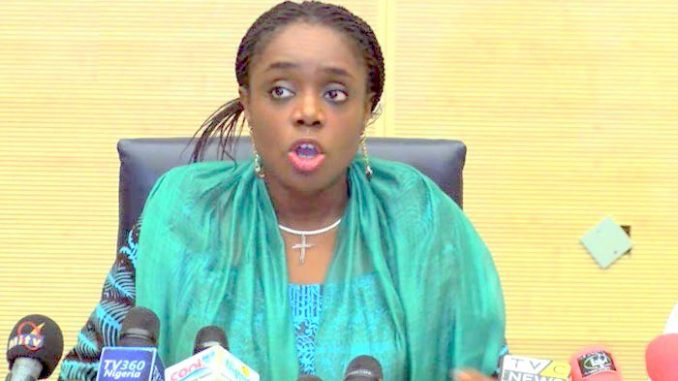
The recovery of the Nigerian economy from recession has been widely celebrated by the Muhammadu Buhari administration.
A recovery occurs when an economy strengthens after a period of recession and in such a situation, various indicators will turn higher including gross domestic product, GDP. Businesses will see an upsurge in positive activities and will start hiring.
Expectedly, a recovery implies that confidence will start increasing and demand for goods and services will rise.
However, more often than not, in most economies, recovery is usually fragile, particularly at its early stages such that should the process be derailed for any reason, whether political or economic, the unravelling negative effects would be disastrous.
For Nigeria not to suffer this fate, therefore, all hands must be on the plough and both monetary and fiscal policies must align.
From the National Bureau of Statistics of 2017, the economy exited recession with a 0.55% quarterly GDP growth rate.
In spite of this, however, this positive growth is considered fragile given that the recovery came as a result of positive developments in the oil sector. There are things to celebrate, of course.
First, the inflation rate has been improving since the exit from recession.
It is recorded that inflation increased by 50% from 9.8% when Buhari took over in May 2015, to 18.72% in January 2017 but has since then taken a positive downward turn with the current rate standing at about 13%.
The other area of positive development for the economy is the increase in foreign reserves from about $29 billion in May 2015 to about $48 billion in May 2018.
Though this is good news, it has to be juxtaposed with the unprecedented level of domestic and foreign borrowing by this government in the past three years such that if the about $7.3 billion euro bond debt is factored into the reported foreign reserve figures, it grossly deflates it.
The debt issue also raises the concern of debt servicing and its implications for revenue generation.
About N1.6 trillion of the debt, according to the country’s Debt Management Office, DMO, was spent on debt servicing with the debt stock rising by N1.327 trillion between September and December 2017.
Given its dire need for resources, over the past three years, the government has been reportedly enhancing its revenue collection to previously unattainable levels, as a means of financing its budget and managing the high debt portfolio.
It must be noted, however, that these levels of enhanced tax revenue generation, if expressed in dollar terms are still lower than the pre-2015 levels given the difference in the dollar-naira exchange rate, from N197 to a dollar in May 2015 to about N360 in May 2018.
The enhanced focus on domestic revenue generation appears quite desirable since the current tax to GDP ratio for the country is about 6%, a far cry from about 15%, which is reported for many African countries.
In fact, the International Monetary Fund, IMF, has expressed concern that the focus should be on this enhanced revenue generation, if debt service obligations would ever be met.
Recent NBS data released in May 2018 on the state of the economy appear very worrisome still and actually bring to the fore, the very evident fragility of Nigeria’s economic recovery.
The figures indicate that the quarterly GDP growth rate that had grown from 0.55% in the second quarter of 2017 to 2.11% in the last quarter of 2017 suddenly fell to 1.95% in the first quarter of 2018, indicating that the momentum of the recovery has subsided.
Apart from that, the structure of the source of growth shows that the oil sector is gradually coming back to the driver’s seat in determining the growth of the Nigerian economy.
Sectorally, the real growth of the oil sector was recorded at 14.77% in the first quarter of 2018, an increase of about 30.37% in comparison to the corresponding quarter of 2017.
For the non-oil sector, the growth was a mere 0.76%. Hence the much-touted growth in agriculture and other non-oil sectors are hardly worth celebrating.
Though the aggregate GDP for the first quarter of 2018 stood at N28.4 trillion and also higher than the N26.028 trillion of the corresponding period of 2017, the structure of that growth tended towards a familiar territory: dependence of the economy on the oil sector.
The unemployment and underemployment rates have also been on the increase with youth unemployment and underemployment particularly worrisome.
These are issues that must be addressed simultaneously to ensure that the recovery is not derailed.
The government’s diversification programme does not appear to generate the kind of outcomes expected. One manifestation of this is that for most of the production sectors, apart from oil, the targets set by the Economic Recovery and Growth Plan, ERGP, have hardly been attained.
Inflation needs to fall further in order to prepare the ground for the Central Bank of Nigeria, CBN Monetary Policy Committee to consider the reduction of the Monetary Policy Rate, MPR, to lead to a downward trend in interest rates in the economy.
The Small and Medium-sized Enterprises, SMEs really need this urgently.
The government needs to be watchful over unwarranted fiscal indiscipline in view of the late passing of the 2018 Budget.
There is also the fear that there would likely be the tendency by government to try to impress the electorate by embarking on emergency projects, for the purpose of re-election, which would likely overheat the economy and further worsen the rate of inflation.
The Federal Government needs to exercise caution in its fiscal programmes for the remaining part of 2018 while the CBN may need to further tighten credit by keeping rates on hold, to ensure price stability.
If the economic situation for the remaining part of the year is not well managed, there is the fear that the fragility of the economic recovery could worsen, especially if the current saving grace, the increasing international price of oil, receives a blow.
END

Be the first to comment